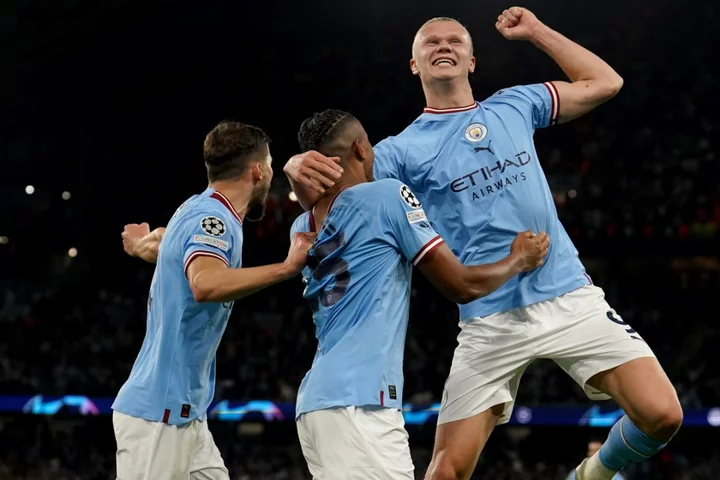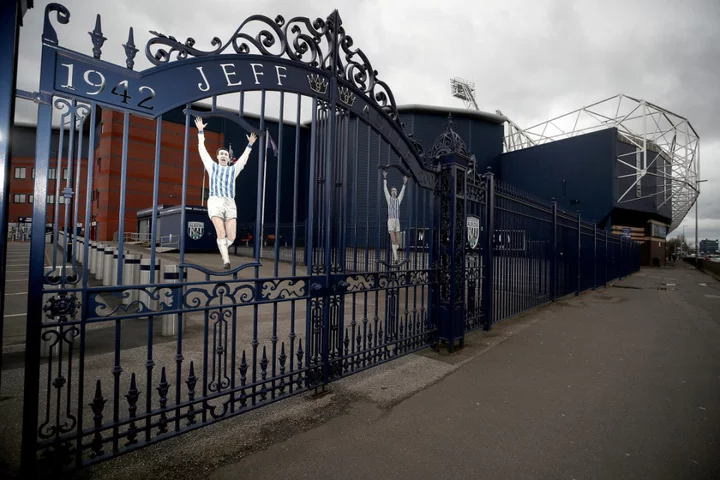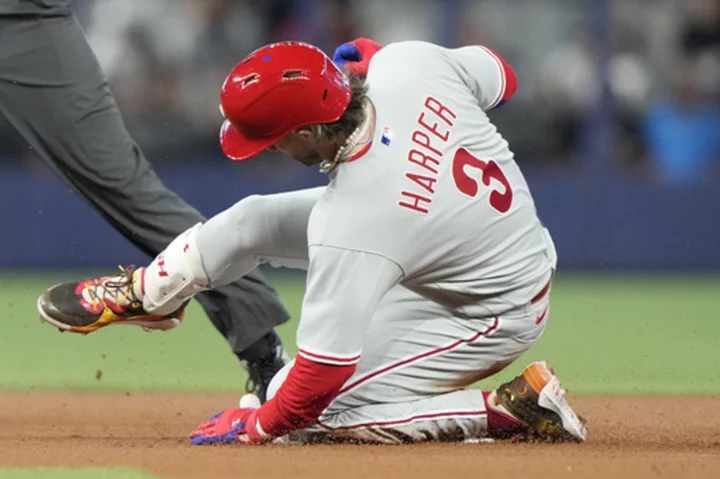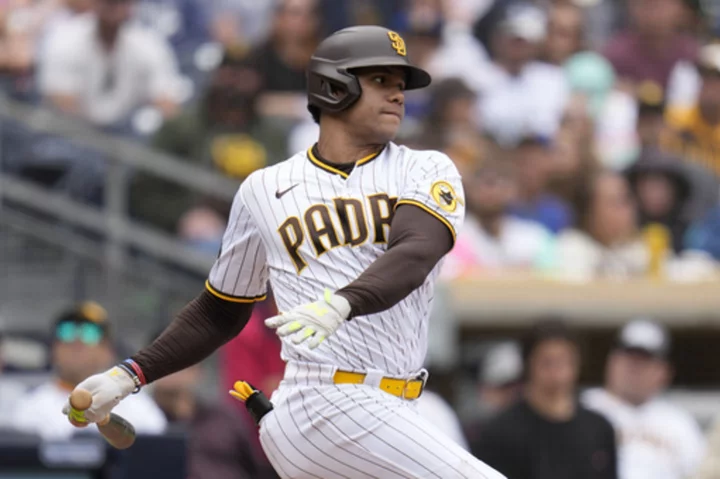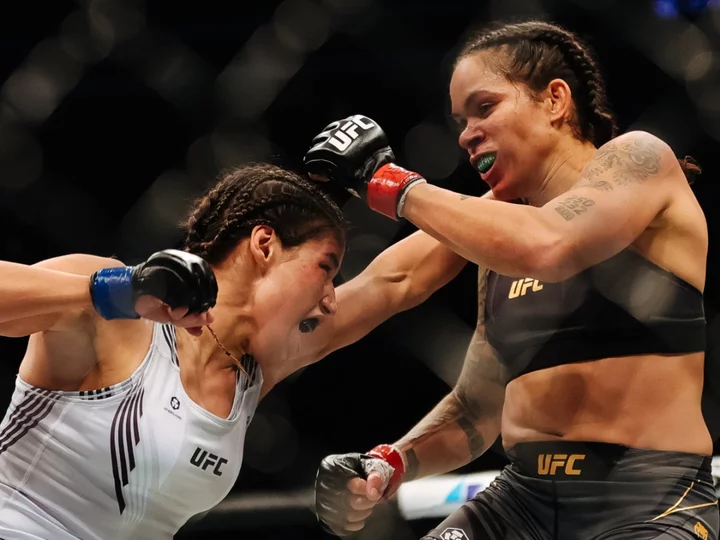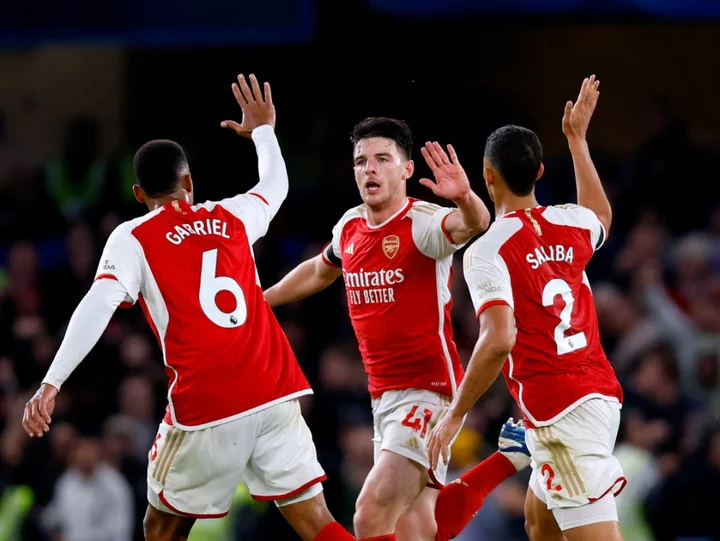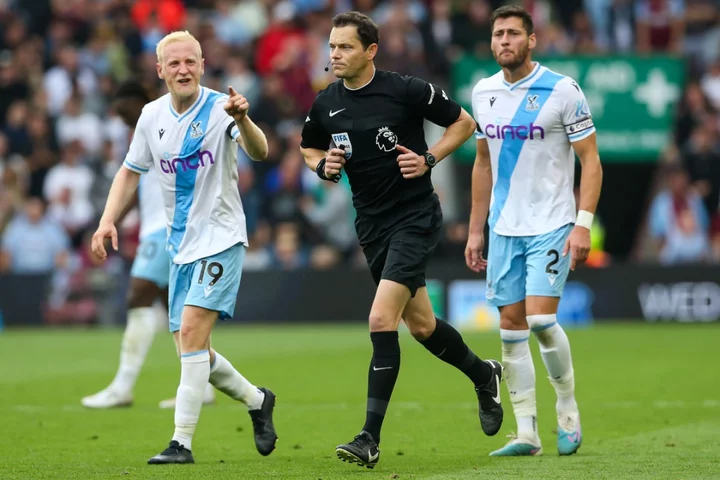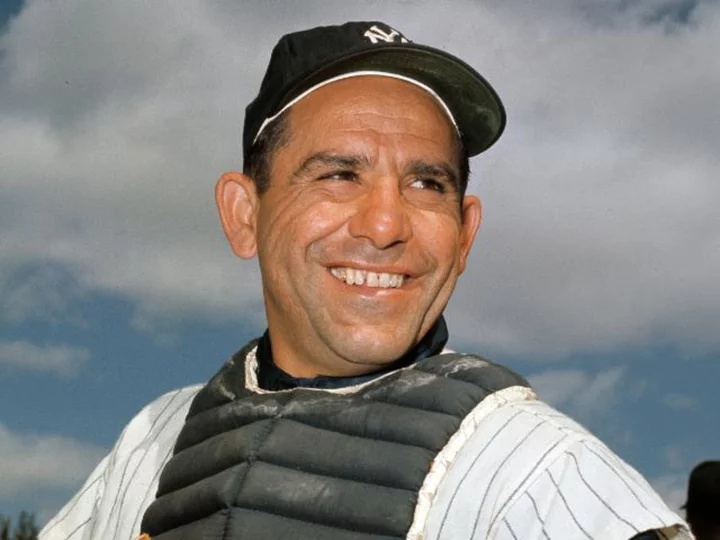Manchester City moved within three wins of the treble by thrashing Real Madrid in the second leg of their Champions League semi-final.
Pep Guardiola’s side need one victory from their three remaining Premier League fixtures to secure the title, while they can also win the FA Cup and Champions League by beating Manchester United and Inter Milan respectively.
City are seeking to emulate their local rivals United who achieved glory on the same three fronts under Sir Alex Ferguson in 1998-99. Here we compare the two sides.
Premier League
There are several parallels between this season’s title race and 1998-99.
Neither City or United topped the table for a prolonged period until the second half of the campaign and both trailed Arsenal at various points during the run-in.
Mikel Arteta’s Gunners were eight points clear of Guardiola’s side with nine games to go at the beginning of April, while Arsenal were three points ahead of Ferguson’s men with two matches remaining in 1999 – although both City and United had a game in hand.
Just as United edged out Arsene Wenger’s team with a 20-match unbeaten run, City have gone 14 Premier League games without defeat to move within touching distance of claiming a fifth title in six years.
Statistically, Guardiola’s treble-chasers have had the better season. They have amassed 85 points and scored 92 goals with three fixtures still to play, while United ended the campaign with 79 points and 80 goals scored.
Dwight Yorke top-scored for Ferguson’s side with 18 goals, which is half as many as Erling Haaland has managed for City (36).
That said, Andy Cole (17) and Ole Gunnar Solskjaer (12) also reached double figures for United, while only Phil Foden (10) has done so for City.
Defensively, Guardiola’s men have conceded 31 goals so far – the joint-fewest in the league alongside Newcastle. United shipped 37 goals in 1998-99, which was more than Arsenal (17), Chelsea (30) and Leeds (34).
Champions League
City topped their group ahead of Borussia Dortmund, Sevilla and Copenhagen, while United finished second behind Bayern Munich but ahead of Barcelona and Brondby.
Guardiola’s side have since gone on to beat RB Leipzig, Bayern and Real Madrid over two legs, thanks mainly to crushing home wins in each tie.
Ferguson’s men had fewer rounds to negotiate in 1999 – when the Champions League was contested by 24 teams rather than 32 – but they still had to get past Inter Milan and Juventus across two legs before facing Bayern in the final.
United’s European campaign was considerably bumpier than City’s, who have scored 31 goals and conceded only five on their path to the final.
The Red Devils – by contrast – lifted the trophy having scored 29 and conceded 16.
While City are yet to concede more than once in a Champions League game this season, United were involved in several high-scoring thrillers including a pair of 3-3 draws against Barcelona in the group stage and a dramatic 3-2 comeback win against Juventus in the semi-final second leg.
FA Cup
As with the Champions League, City’s route to the final has been largely serene while United’s 1998-99 campaign was filled with trials and tribulations.
Guardiola’s team have cruised past Chelsea, Arsenal, Bristol City, Burnley and Sheffield United without conceding a goal, becoming the first side to reach the final with a perfect defensive record since Everton in 1965-66.
Meanwhile, as well as coming back from a goal down against Middlesbrough and Liverpool in rounds three and four, United needed replays to see off Chelsea in the quarter-finals and Arsenal in the semis.
The latter victory was especially dramatic, with Peter Schmeichel saving a Dennis Bergkamp penalty to keep the game at 1-1 and Ryan Giggs scoring a wonder goal in extra time.
Read MoreOn this day 2016 – Liverpool lose to Sevilla in Europa League final
Man City crush holders to book Champions League final return
We had to swallow poison – Pep Guardiola delighted to get revenge on Real Madrid
Why is BT Sport being rebranded to TNT Sports?
West Ham boss David Moyes looking to conquer AZ Alkmaar again
Eric Cantona to Joey Barton – the Premier League’s longest bans

